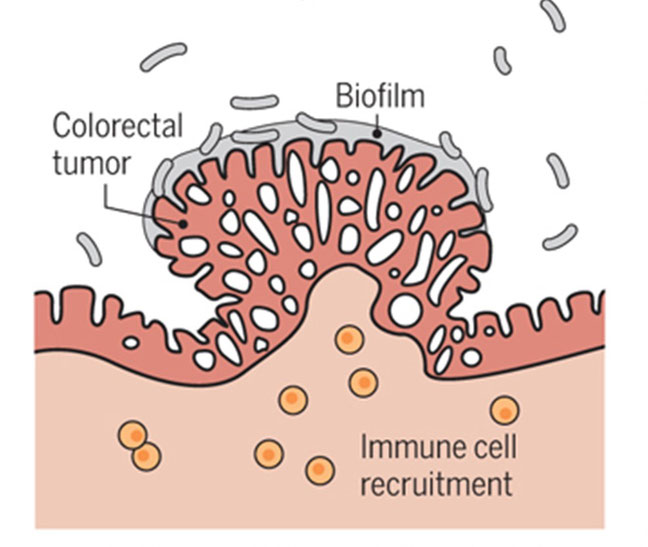Impact of the intestinal microbiome on colorectal cancer metastasis
Colorectal cancer (CRC) ranks as one of the most commonly diagnosed cancers world-wide, with the main cause of CRC-related deaths attributed to the metastatic cancer spread. Cells that are responsible for metastasis are called circulating tumor cells (CTCs). The majority of CTC studies have been performed in other cancer types and their detailed characterization in CRC patients is still absent. Rising evidence suggests that the intestinal microbiome, the community of microorganisms in our intestine, has a tremendous power to modulate human health and plays a critical role for the development of CRC, in particular (Figure adapted from Garret’s ‘The gut microbiota and colon cancer’; Science, 2019). By regulating immune responses, the intestinal microbiome is able to modulate therapy effectiveness and disease course determining the fate of our patients.
This project focuses on a huge potential of the intestinal microbiome as a novel therapeutic agent in the treatment of CRC, especially in the context of our understanding about the underlying functional mechanisms of the complex interplay between the intestinal microbiome and our human body. We aim at unrevealing novel contributions of microbiota on the metastatic processes in CRC patients. The discovery might lead to the development of novel therapeutic approaches.




